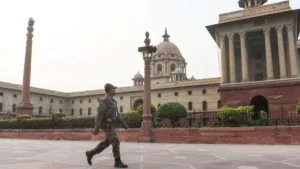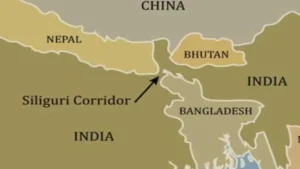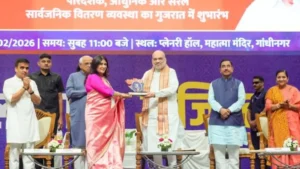The Union Cabinet, chaired by Prime Minister Narendra Modi, has approved the constitution of the 8th Central Pay Commission, which will evaluate and recommend revised salary structures and allowances for central government employees and pensioners. This early initiative ensures readiness for implementing the recommendations by January 1, 2026. The commission’s scope encompasses over one crore employees and pensioners, aiming to address compensation, pensions, and welfare enhancements.
Key Highlights of the 8th Pay Commission
Approval and Formation
- The Union Cabinet has sanctioned the establishment of the 8th Pay Commission.
- Information and Broadcasting Minister Ashwini Vaishnaw announced that the commission’s Chairman and two members will be appointed soon.
Timeline and Implementation
- The 7th Pay Commission’s recommendations remain effective until 2026.
- The 8th Pay Commission’s recommendations will be prepared for implementation by January 1, 2026.
Scope and Expectation
- Revises basic pay, allowances, pensions, and benefits for central government employees and pensioners.
- Includes potential adjustments to Dearness Allowance (DA) and Dearness Relief (DR).
Historical Context
- Pay Commissions are established every 10 years to review compensation structures based on economic indicators like inflation.
- The 7th Pay Commission was constituted in 2014, submitted its report in 2015, and its recommendations were implemented in 2016.
Government Proactive Approach
- Early constitution ensures a seamless transition to revised pay structures.
Next Steps
- Further details, including membership and terms of reference, will be announced soon.
Key Expectations from the 8th Pay Commission
1. Salary Enhancements
- The minimum basic salary, increased from ₹7,000 to ₹18,000 by the 7th Pay Commission, may rise to ₹51,480 (approx. 186% increase).
2. Fitment Factor Adjustment
- The fitment factor, set at 2.57 by the 7th Pay Commission, is expected to increase to 2.86, ensuring higher pay hikes.
3. Allowance Revisions
- Comprehensive reviews of allowances like DA, HRA, and TA are anticipated to align with current inflation and economic conditions.
4. Pension Reforms
- Possible enhancements in pension amounts and measures to ensure timely disbursement.
5. Performance-Based Incentives
- Introduction of performance-linked pay structures to boost productivity and efficiency.
6. Health and Welfare Benefits
- Expansion of health insurance schemes and welfare measures for employees’ well-being.
7th Central Pay Commission (7th CPC)
- The 7th CPC was established in 2014 to review and recommend revisions in pay, allowances, and pensions for central government employees and pensioners.
- Its recommendations, implemented from January 1, 2016, brought significant changes to the compensation structure.
Key Recommendations and Implementations
Revised Pay Structure
- Minimum Pay: Increased from ₹7,000 to ₹18,000 per month.
- Maximum Pay: Set at ₹2,50,000 per month for top positions like the Cabinet Secretary.
Pay Matrix Introduction
- Introduced a simplified pay matrix with 19 levels, ensuring uniformity in salary progression.
Allowances Rationalization
- Rationalized key allowances, including DA, HRA, and TA, to reflect economic conditions.
Pension Reforms
- Ensured a minimum pension of ₹9,000 per month, with higher pensions aligned with the pay matrix.
Performance-Linked Pay
- Proposed incentives for efficiency through performance-related pay.
Defense Forces Considerations
- Special recommendations for defense personnel addressing unique service conditions.
| Summary/Static | Details | |
| Why in the news? | Cabinet Nod for 8th Pay Commission Implementation | |
| Aspect | 7th Commission | 8th Commission (Expected) |
| Constitution Date | February 28, 2014 | January 16, 2025 (Cabinet Approval) |
| Implementation Date | January 1, 2016 | January 1, 2026 |
| Minimum Basic Pay | ₹18,000 | ₹51,480 (Expected 186% increase) |
| Fitment Factor | 2.57 | 2.86 (Expected increase) |
| Pay Structure | Simplified Pay Matrix with 19 levels | Likely continuation with adjustments |
| Allowances | Rationalized DA, HRA, and TA | Comprehensive reviews aligned with inflation |
| Pension Minimum | ₹9,000; linked to pay matrix | Higher pension amounts, timely disbursement |
| Special Features | Performance-related pay, defense-specific recommendations | Possible performance-linked pay structure |



 North & South Blocks to Become ‘Yuge...
North & South Blocks to Become ‘Yuge...
 Why Is India Building an Underground Rai...
Why Is India Building an Underground Rai...
 Digital PDS Launched Under ‘Minimum Gove...
Digital PDS Launched Under ‘Minimum Gove...








